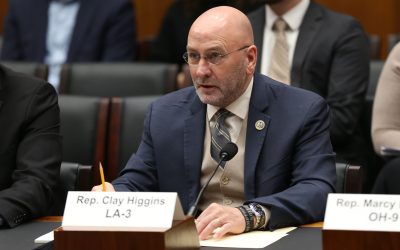WASHINGTON, D.C. – The U.S. House of Representatives today passed Border Security Subcommittee Ranking Member Clay Higgins’ (R-LA) H.R. 4761, the DHS Opioid Detection Resilience Act of 2019, in a 393 – 1 vote.
The bill requires the Commissioner of CBP to implement a strategy ensuring CBP chemical screening devices are able to identify narcotics in an operational environment with purity levels of 10% or less. According to the 2018 Drug Enforcement Administration (DEA) National Drug Threat Assessment, fentanyl seized at the southwest border tends to be less than 10% pure. These changes would fill the detection capability gap that currently exists. The bill also requires DHS to implement a plan for the long-term development of a centralized spectral database for chemical screening devices, allowing DHS to push out data to the field as new drug analogs or spectra are identified.
Congressman Higgins issued the following statement:
“The DHS Opioid Detection Resilience Act helps CBP law enforcement officers carry out their mission and stop the illegal flow of fentanyl and other synthetic opioids. Our legislation ensures that DHS has the necessary technologies to detect synthetic opioids and combat evolving smuggling methods. This is a bipartisan effort, and I’m uplifted to see it pass with broad support.”
View a summary of the DHS Opioid Detection Resilience Act of 2019 here.



